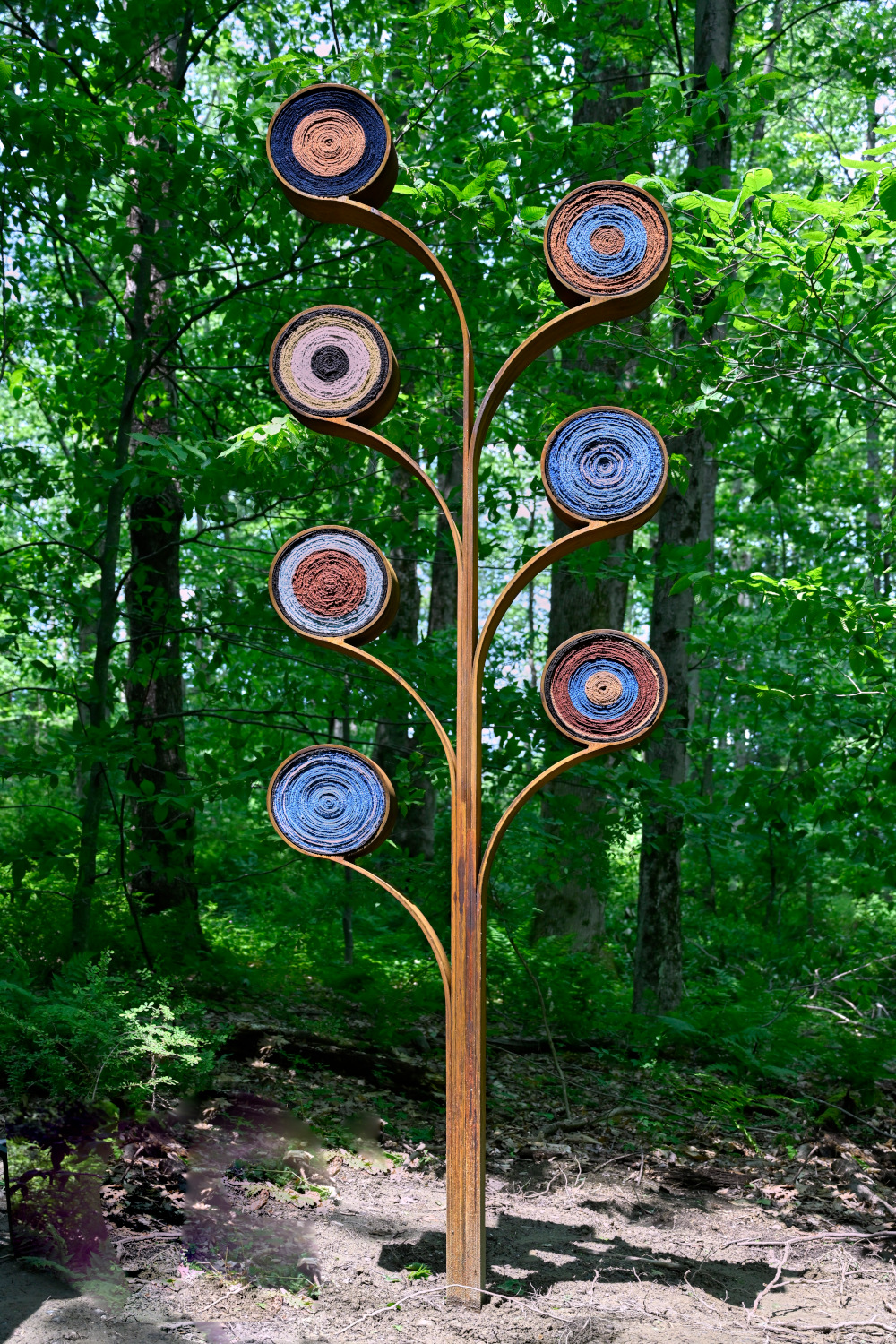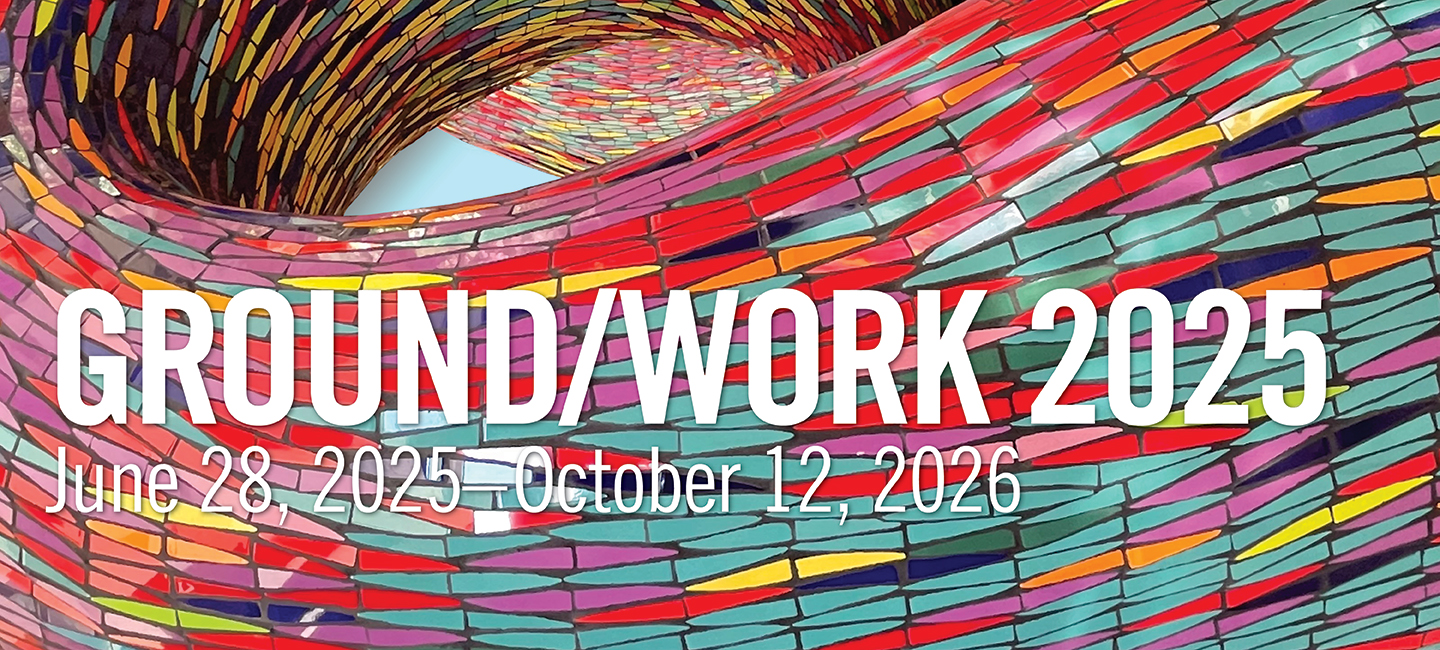Aboubakar Fofana: Trees and Seeds of Life

As a child, Aboubakar Fofana learned from his grandmother, a skilled healer and herbalist, about the plants around him. For Ground/work 2025, he has created two banangolos, “trees of life,” placed along this path like way‐markers. The branching steel forms hold rolls of handwoven African cotton, which he has dyed with natural materials: variations of indigo (blue), n'galama (ochre), and tiangara (bright yellow), all grown and processed on his farm in Mali; bogo ni bassi (riverbed mud and tannin, for the gray and black); and Indonesian ceriops tagal (terracotta red and brown). Fofana sees the resulting vibrant spirals as seeds transplanted from his land. It is significant that indigo and cotton were cash crops in the economy of enslavement; Fofana says, “I have in memory always that they have been symbols of oppression.” In planting his seeds here, he makes a powerful his seeds here, he makes a powerful gesture of reconciliation.
